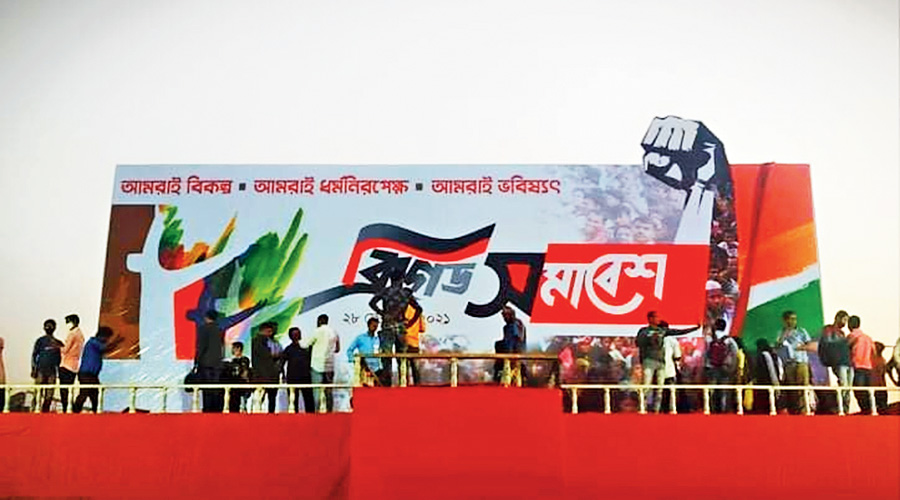An impressive rally — the turnout at the first public meeting of the coalition featuring the Left Front, the Congress and the Indian Secular Front was sizeable — need not translate into electoral gain. Nonetheless, several intriguing signals emerged on account of the gathering. Bengal’s assembly election is being largely seen as a two-way contest between the ruling Trinamul Congress and the Bharatiya Janata Party that has emerged as the principal challenger. Yet, Sunday’s public meeting proved that the third fledgling alternative, featuring the Congress, the Left and its new ally, may have pockets of influence, especially in minority-dominated areas. This is because the ISF is likely to concentrate its efforts on mobilizing the Muslim vote that, some estimate, could decide the outcome in numerous seats. Ironically, the ISF’s perceived strength could weaken its allies. The Congress is worried about the ISF cutting into its traditional vote-base in North Bengal: its talks of seat-sharing with the ISF has run into rough weather. The Communist Party of India (Marxist), too, knows that the Muslim vote could be crucial to its resurgence. The squabblings within the allies need not broaden the smiles in the camps of their rivals. The Trinamul Congress would be keeping an anxious eye on a possible split in the minority vote. Although the BJP is likely to gain as a result of such a fracture and the counter-mobilization that it would engineer among orthodox Hindus, an energized Left could also mean that some segments of voters, who had traded red for saffron, may be willing to return to their original party of choice.
These inferences signify both continuities and departures. For instance, the fracas between the Congress and the ISF shows that competitive politics around the Muslim vote remains unabated on the problematic assumption that the community votes en bloc. This may no longer hold true. Traditional constituencies — Hindus, Muslims and caste groups — are increasingly transforming themselves into subsets with specific aspirations. Politics, too, is aligning itself around these microcosmic mobilizations. Bengal is also experiencing these transformations that are likely to make electoral contests intense and unpredictable.











